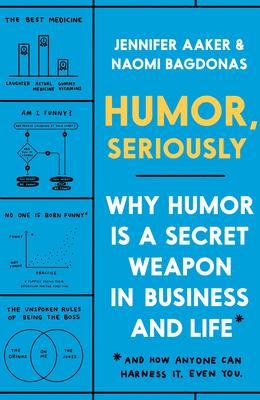
2 minute read
Reading for Well-Being
by Joanna Pozzulo, Ph.D.
Although the world can be a serious place, it also can be filled with joy and laughter. Finding something to smile about can be challenging at times, but we should make an effort. There's sound science behind it!
The science of humour? Do "science" and "humour" belong together? Turns out that they do! In "Humor, Seriously: Why Humor Is a Secret Weapon in Business and Life" by Jennifer Aaker and Naomi Bagdonas (2021), you'll learn about the evidence that suggests bringing more humour into your life may improve your wellbeing. So, what is the connection between humour and well-being?
For starters, the act of laughing or even the anticipation of laughing can decrease our stress hormone, cortisol, by about 39% and our fightor-flight hormone, epinephrine, by about 70%, making you feel calmer and less stressed. Adding humour to information might even help you remember it better. These were just some data the authors reported on in Humor, Seriously.


Suppose you think you're not a very funny person; don't worry. The book has several strategies to help you be funnier. Perhaps one of the easiest strategies is to laugh. According to the authors, laughing makes you funnier. My personal favourite was to be on the lookout for "funny"; chances are, there are some around you that you may not have noticed. I also appreciated the nod to "time." Sometimes, time needs to pass before you can see the funny side of a situation. What might be infuriating or awkward at the moment might be funny after some time has passed.
Overall, humour can relieve stress, allow us to make more meaningful connections, increase our creativity, and build our resilience. So have a read and a laugh for improved well-being.
For more evidence-based picks for well-being, sign up for the Reading for Well-Being Community Book Club, https://carleton.ca/mental-health/book-club-sign-up/
Check out the Reading for Well-Being Podcast for interviews with authors of my book picks, https://www.youtube.com/@ReadingforWellBeingPodcast
Happy reading (and listening)!

Joanna
Pozzulo, Ph.D.
Chancellor’s Professor Department of Psychology Director, Mental Health and Well-Being Research and Training Hub (MeWeRTH) https://carleton.ca/mental-health/ Carleton University











